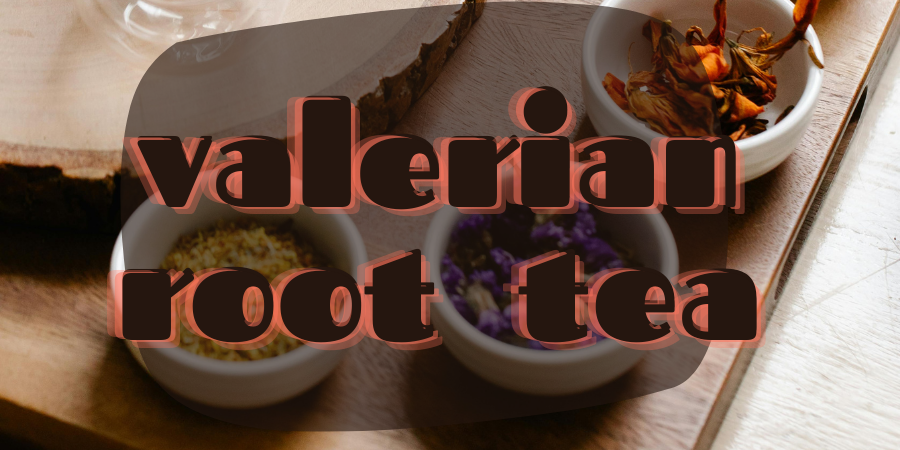For centuries, humans have turned to nature for remedies that calm the mind and improve sleep. One of the most respected herbs in this category is valerian root. Often nicknamed “nature’s Valium,” valerian root tea has been used as a natural aid for insomnia, anxiety, and stress relief. Today, it remains a popular herbal option for those looking to relax without relying on pharmaceuticals.
What Is Valerian Root?
Valerian (Valeriana officinalis) is a perennial plant native to Europe and Asia. Its roots contain active compounds like valerenic acid and isovaleric acid, which are believed to influence brain chemistry linked to relaxation and sleep.
History and Traditional Uses of Valerian
Valerian has a rich history. Ancient Greeks and Romans used it as a sleep aid, stress reliever, and even as an antidote for hysteria. In medieval times, it was a common herbal remedy for nervousness and heart palpitations. Today, valerian tea continues this legacy as a trusted natural tranquilizer.
🌙 How Valerian Root Tea Works for Sleep and Anxiety
Valerenic Acid and the Brain
The magic of valerian root lies in valerenic acid, a compound that interacts with brain receptors to produce a calming effect.
Effects on GABA Receptors
Valerian enhances the activity of gamma-aminobutyric acid (GABA), a neurotransmitter that helps regulate nerve impulses. This mechanism is similar to how anti-anxiety medications like benzodiazepines work—though valerian is far gentler.
Natural Sedative and Relaxant Properties
Because of these effects, valerian tea is often used to:
- Reduce time to fall asleep
- Improve overall sleep quality
- Ease anxiety and stress-related tension
✅ Health Benefits of Valerian Root Tea
Valerian Tea for Insomnia and Restful Sleep
Studies suggest that valerian tea can reduce nighttime awakenings and improve deep sleep cycles, making it particularly useful for people struggling with chronic insomnia.
Anxiety Relief and Stress Reduction
Drinking valerian tea may help calm racing thoughts and ease muscle tension, offering relief for people with mild anxiety or stress.
Supporting Mental Clarity and Mood Balance
Unlike strong sedatives, valerian root tends to relax without dulling the mind, allowing for improved focus and mood stability.
Other Potential Benefits of Valerian Root
- Relief from headaches and migraines
- Support for menstrual discomfort
- Potential aid in lowering blood pressure
🍵 How to Prepare Valerian Root Tea
Choosing the Right Valerian Root
You can buy valerian as:
- Loose dried root
- Pre-packaged tea bags
- Powdered capsules (less common for tea)
Step-by-Step Brewing Instructions
- Boil 1 cup of water.
- Add 1 teaspoon of dried valerian root (or 1 tea bag).
- Steep for 10–15 minutes (the longer, the stronger).
- Strain, sip, and enjoy.
⚠️ Note: Valerian tea has an earthy, pungent smell that some describe as “woodsy” or “musky.”
Enhancing Flavor with Complementary Herbs
To improve taste, many blend valerian with:
- Chamomile
- Lemon balm
- Peppermint
- Lavender
🕒 Recommended Dosage and Safe Consumption
Best Time to Drink Valerian Root Tea
The ideal time is 30–60 minutes before bedtime to maximize sleep benefits.
How Much Is Too Much?
- 1–2 cups per day is considered safe.
- Higher doses may cause grogginess or stomach upset.
⚠️ Side Effects and Precautions
Possible Side Effects of Valerian Tea
- Mild headaches
- Dizziness
- Nausea
- Daytime drowsiness (if consumed in large amounts)
Who Should Avoid Valerian Tea?
- Pregnant or breastfeeding women
- Children under 12
- People with liver disorders
Interactions with Medications
Valerian may interact with:
- Sedatives (benzodiazepines, barbiturates)
- Alcohol
- Sleep medications
👉 Always consult a doctor before mixing valerian with prescription drugs.

🌼 Valerian Root Tea vs. Other Herbal Teas for Anxiety
Valerian vs. Chamomile Tea
- Chamomile: Gentle, calming, best for mild stress.
- Valerian: Stronger, best for insomnia and chronic anxiety.
Valerian vs. Lavender Tea
- Lavender: Great for relaxation and mood enhancement.
- Valerian: More potent for deep sleep induction.
Valerian vs. Green Tea (L-Theanine)
- Green tea: Promotes calm alertness (good for daytime).
- Valerian: Promotes sedation (best before bed).
🛒 Where to Buy the Best Valerian Root Tea
Loose Leaf vs. Tea Bags
- Loose leaf: Stronger flavor, customizable.
- Tea bags: Convenient, milder taste.
Trusted Brands and Online Shops
Look for organic and high-quality brands such as:
- Traditional Medicinals
- Buddha Teas
- Yogi Tea
(Available on Amazon, health stores, and herbal shops.)
❓ Frequently Asked Questions
1. Can valerian root tea make you groggy the next day?
Yes, if consumed in large amounts. Stick to 1–2 cups at night.
2. Is valerian root tea addictive?
No, it’s considered safe and non-habit forming.
3. How long does valerian tea take to work?
Effects are usually felt within 30–60 minutes.
4. Can I drink valerian tea every night?
Yes, but experts suggest taking short breaks after several weeks to avoid tolerance.
5. Can valerian tea be mixed with alcohol?
No, this can intensify drowsiness and cause side effects.
6. Is valerian tea safe with antidepressants?
Not without medical advice, as it may interact with certain medications.
🌙 Conclusion: Is Valerian Root Tea Right for You?
Valerian root tea is a natural, effective remedy for people struggling with sleep problems and anxiety. With centuries of use and modern research backing its calming effects, this herbal tea can be an excellent alternative to pharmaceutical sedatives.
If you’re looking for a gentle, plant-based way to relax, a warm cup of valerian root tea before bed may be just what you need for peaceful nights and calmer days.
read more:
